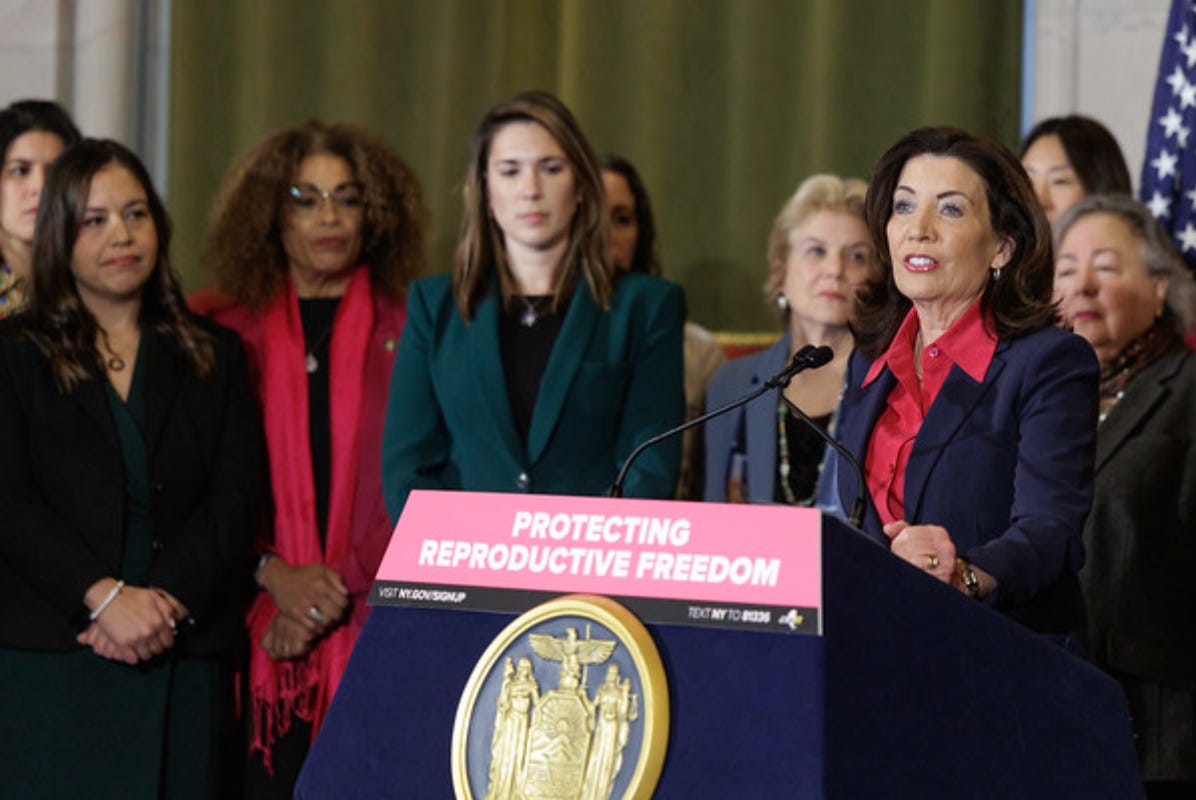NY Gov. Hochul tries to protect abortion providers. Will she have to extradite them?
After a Louisiana grand jury indicted a telehealth provider, how will the federal courts rule on the jurisdictional conflicts involving abortion medication?
New York Gov. Kathy Hochul signed legislation that will partly protect doctors giving abortion medication prescriptions In the wake of a Louisiana prosecutor charging a New York doctor who did for one of their state’s residents.
“Reproductive freedom will always be protected in the State of New York — and I’ll never back down from this fight,” Gov. Hochul said. “I’m taking action to strengthen protections for health care professionals and their patients, ensuring New York is a safe haven for anyone providing or receiving reproductive care.
“At a time when fundamental rights are under attack across the country, we are doubling down on our commitment to safeguard access to reproductive health care and defend those on the frontlines of this battle.”
The law enhances New York’s shield law by offering additional protections for doctors prescribing medications used to perform abortions to patients in hostile states. This bill would allow prescribers to ask that the dispensing pharmacy print the name of their practice instead of their own names on the prescription labels for mifepristone, misoprostol, and generic alternatives. It ensures that pharmacies assist with this protective measure.
In 2023, Gov. Hochul signed legislation enacting a telehealth shield law in response to antiabortion states moving toward punishing telehealth providers who violate state abortion bans. Research from the Society for Family Planning indicates that one in five abortions conducted in December 2023 were via telehealth, with an estimated 48 percent of these procedures performed by doctors in states with shield laws like New York’s.
While it’s unsurprising that New York moved in that direction, it remains to be seen how this jurisdictional conflict with the Louisiana authorities plays out. How will federal courts rule on one state refusing to extradite a person to another that accused them of a crime?
Last week, a Louisiana grand jury indicted a New York-based doctor who prescribed medication abortion after a telemedicine consultation with a pregnant teenager. The indictment mentioned Dr. Margaret Carpenter, her company, Nightingale Medical, PC, and the minor’s mother. All three were charged with criminal abortion by means of abortion-inducing drugs, which is a felony. Police issued an arrest warrant for Carpenter.
According to the extradition clause in the Constitution, someone who went to another state but was charged in a different one with treason, a felony, or another crime must be sent back to the place where they’re charged to face prosecution.
I did some research on extradition law. According to Google AI, the pertinent case is Puerto Rico v. Branstad, which the Supreme Court ruled in 1987. That case involved Ronald Calder, a native of Iowa working in Puerto Rico. He was charged with first-degree murder and attempted murder. After posting bail, he fled to his home state. Puerto Rico petitioned Iowa Gov. Terry Branstad to extradite Calder for court proceedings. Branstad refused.
The Supreme Court ruled against Branstad and effectively removed a governor's discretion to deny extradition requests, meaning the last time a state could have refused to extradite someone without a legitimate legal reason was before this ruling.
I plan on reaching out to some constitutional law experts about this question. But that’s an update for now.




